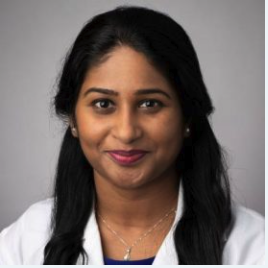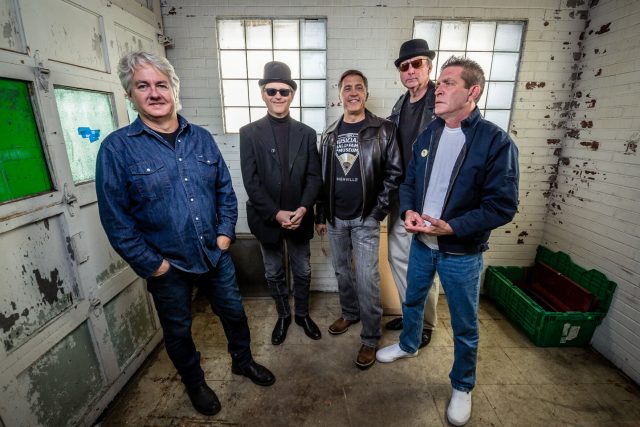Medical community rallies around oncologist with cancer
Published 6:00 am Tuesday, April 2, 2024

- Dr. Shajadi Patan
Dr. Shajadi Patan spent years studying oncology at Louisiana State University and helped countless cancer patients locally at Graves Gilbert Clinic.
After three years in Bowling Green, her family moved to Kansas City, Missouri, so she could pursue a position at MidAmerica Cancer Care to focus on breast cancer work specifically.
Her passion stems from her own mother, who suffered from breast cancer.
Earlier this year at 37 years old, she received a diagnosis of her own – advanced ovarian cancer.
“I went in for a surgery for an ovarian cyst after some abdominal pain, and the doctors thought it looked like something that might not come back as a cancer,” Patan recalled. “They didn’t do the surgery because when they went in, they saw the cancer there.”
Now, Patan is battling chemotherapy while unable to work. Her husband, Sudheer Yetthapu, is struggling to find employment in their new home despite his Master’s degree in computer science.
They live in the United States on visa from India even after 13 years of residence. They have two children, 6-year-old Ayra and 4-year-old Riya.
The family is not sure what the future holds for them.
“With the diagnosis, my job is at stake, my visa is at stake, if I don’t have a visa my insurance is not going to be there,” Patan said. “What’s the point of being here 13 years, serving here and having to pay the taxes – my husband says all the time, ‘I’m a law-abiding citizen.’ ”
She added that her background in oncology has been both a blessing and a curse as she navigates her treatment.
“I know the statistics, I know the numbers, I know the signs and I know the science can work in my favor or work against me,” Patan said. “I know exactly what drugs I’m getting, I know exactly what those drugs mean. I know the trials that are done in ovarian cancer.
“All that information worked against us in believing that I could beat this because the statistics are 50:50 – I could be on this side of the curve or on that side of the curve.”
Patan said the next six months will pose the greatest risk, saying “there is hope after that.” Even if all goes well, she is looking at around four difficult years of treatment.
She said if the diagnosis was different, if they had caught the cancer earlier, she “would have walked with the IV pole around the hospital” rather than stopping her work.
“If I knew the outcome would have been fine, I could have just managed to work with this pole hanging and then just sit next to another person who’s also getting treatment and sign their orders,” Patan said. “What I’m trying to say is, my diagnosis is something that anything could happen.”
Patan said it has been frustrating and scary navigating chemotherapy, motherhood, immigration and mortality all at once. She said she could never see this coming at 37.
She encouraged women to be more proactive with their health – “talk to your bodies.” Her abdominal pain began around a month before she sought treatment, but she wonders if things could have looked different if she had gone sooner.
“Women are busy with kids and they don’t take a minute to see what changes are going on with their body,” Patan said. “Then, by the time they are focused on themselves, sometimes it’s late.”
She also thanked the many colleagues and patients for their support in recent months and for allowing her “the opportunity to be involved in their care.”
“The last thing is just keep me in your prayers,” she said.
Dr. Kamal Singh, an internal medicine physician at Graves Gilbert Clinic with a primary practice in Russellville, referred numerous patients to Patan during her time in Bowling Green.
“She was an excellent physician. My patients whom she helped still ask me about her, and with her permission, I have told a couple of patients what’s going on with her,” Singh said. “So there are some prayers going on for her in the churches around Russellville.”
Singh added that Patan is not just a medical professional for her patients – she is a caring friend who goes above expectations to show compassion.
“One of the things she told all patients was, ‘I don’t know what the future is going to hold for you, but I’m going to be there with you every step of the way,’ ” Singh said.
He said Patan would often give out her direct contact information to be available at all times, which Singh said was worthy of praise.
“To me, that is the reason why I send a lot of my patients to her, because these patients are very scared,” Singh said. “What they need is somebody who’s not going to just treat them medically well, but also be their friend and guide through this very difficult journey in their lives.”
Singh also feels for Patan’s visa concerns, having gone through the process himself.
“Until you get your immigration through, you are at the mercy of your employer and at the mercy of the federal government,” Singh said. “The way I understand it is that … you have to keep working to maintain your visa – the moment you stop working, you tend to lose your visa status and you become an illegal (resident).”
He recalled a different oncologist who worked locally in the early 2000s only to lose her job due to health issues. She was forced to return to her home in Sri Lanka.
Singh and many other colleagues do not want to see the same fate befall Patan.
He and others have had discussions with U.S. Sen. Mitch McConnell’s office to help expedite potential relief and collect letters of support that could help Patan stay in the U.S. He expressed optimism, adding that McConnell’s representatives have been “very gracious.”
Many have also donated to a GoFundMe organized by Patan’s brother, which has so far raised nearly $16,000, titled “Help for family in Kansas City.”
“I always tell people that in the United States, one thing we do is we take care of our own,” Singh said. “It’s time to take care of one of our own, and we need to do that.”






